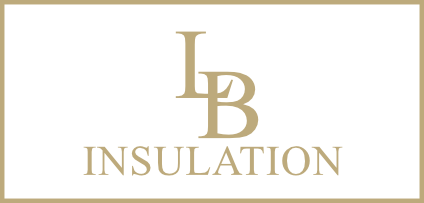Frequently Asked Questions
About Insulation
Do you have questions about insulation? LB Insulation has answers! Below are answers to common concerns we hear from our customers.
1. Are there any incentives available to insulate?
Yes! The U.S. Federal Government is offering a tax credit of up to $500 for homeowners who make certain energy efficiency upgrades in their home, like adding insulation. Visit ENERGY STAR to learn more or contact us with questions.
Homeowners may be eligible to receive additional rebates for making certain energy-efficient upgrades. Check with your local utility company to see if they offer rebates. Also check out the U.S. Department of Energy’s Database of State Incentives for Renewables & Efficiency to see if you qualify for any energy rebates.
2. What is R-Value?
The “R” in R-value stands for resistance to heat flow. The higher the R-value, the higher the level of resistance and the greater the insulating power. R-value requirements vary depending on climate and building type.
3. What R-Values are recommended for homes in this area?
The amount of insulation needed varies depending on location, building type and materials. We can provide more information about the recommended R-Value once we discuss your project scope. Click here to view recommended home insulation R-Values in the U.S.
4. Can insulation help with noise control?
Yes. Airborne noises such as conversation, running appliances, electronic devices and household equipment carry and echo through walls, ceilings and floors. Good insulation has the ability to reduce such atmospheric interference, leaving rooms much quieter. According to Energystar.gov, insulating your home can reduce the noise from outside your house as well as make it harder for pollen, dust, pests and insects to enter your home. It also allows for better humidity control and may lower the chance for ice dams on the roof/eves in snowy climates. In addition to keeping the noise levels low, this will also improve the overall comfort of your home.
5. What is air sealing?
Air sealing means sealing the cracks, crevices, gaps and other areas in your home that may be leaking air. We typically seal these areas with caulk and foam products.
6. What are the main types of insulation to choose from?
There are a few types of insulation materials to choose from, each having its own set of pros and cons. The insulation type you choose will depend on your needs.
Insulation Types
- Batt & Roll
- Loosefill
- Rigid Foam
- Spray Foam
Insulation Materials
- Fiberglass
- Cellulose
- Spray Foam
- Radiant Barrier
7. Which insulation product is the best?
Every insulation job has its own unique set of requirements, and every homeowner has their own budget guidelines. To make an informed decision, it’s important to talk to a knowledgeable insulation expert so you can learn exactly what options are best for you. Contact LB Insulation to discuss your specific needs.
Have more questions about insulation? We have answers! Contact LB Insulation today.
Get A Free Estimate
"*" indicates required fields

